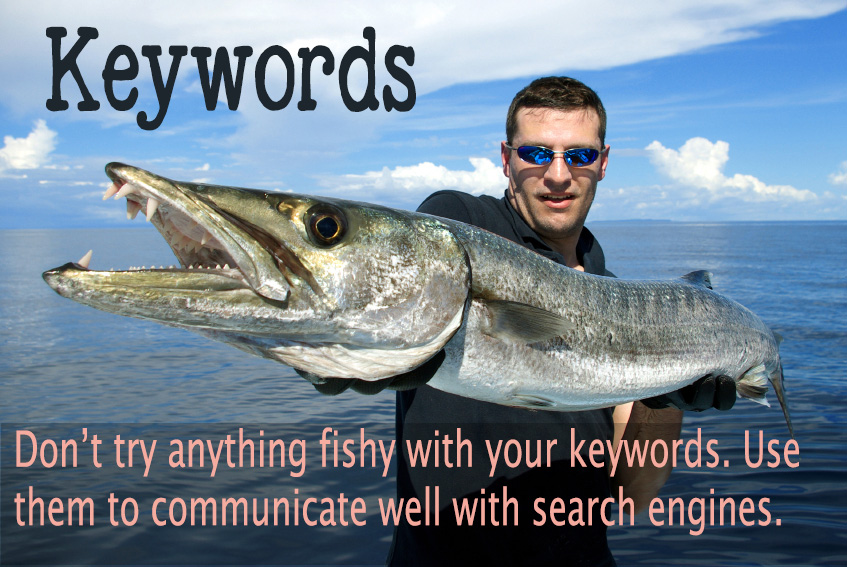Once upon a time, the relationship between search engines and keywords was simple. People would type a word into the search box and the search engine would simply show all the pages with that word, probably in chronological order. You can still see this type of simple search engine on most internal site searches.
Then the internet got complicated. For one thing, there were too many pages for that simple method to work well. It’s one thing to choose among five or 6 pages, and another thing entirely to choose among five million. We humans needed some help in identifying the best choice. For another, people began cheating — adding keywords they didn’t deserve to meta tags, stuffing their content full of keywords they thought searchers might use, and otherwise messing with the system so that it would no longer show searchers what they wanted.
Enter Google’s famous search algorithm. Over time, Google’s search algorithm and those of other search engines have gotten a lot better at determining what a page is really about and even at identifying quality as well as relevance to people’s searches. Google is one of the most important researchers in artificial intelligence and has made great strides in analysis of human language by its software. Updates in Google’s algorithm over the past few years have allowed the focus to move from keywords to human intentions.
People have also gotten better at searching. We no longer type a word in and wait to be handed a page. Very few searches now use a single word, and some 20% of all searches are brand new — something Google has never seen before. People are likely to ask questions rather than type in a set of keywords. They’re also more likely to adjust their question rather than looking at more pages of search results. And AI affects search strongly and will do so even more in the future.
So where does this leave keywords when it comes to SEO?
Keywords still matter.
While keyword craziness makes even less sense now than it used to, you still need to know what your customers are looking for. If your customers search for “BB cream” and you’re calling your product “hydrating foundation,” you’re not as likely to turn up on their search engine results pages.
What can you do about it?
- Do some research to determine what terms your customers use when they look for the goods and services you provide. You can use Google Analytics, Google Search Console, Google Trends, and market research, as well as the keyword tools in Google Ads. Google Ads can also be an excellent way to test and fine tune your keyword choices. You can also ask people in your target demographic how they search.
- Check your website’s performance for the keywords you’ve identified. Search Console is your best bet here, along with the Google Analytics data you get when you hook up Search Console with Google Analytics. Here you can see some information from the Search Console for our lab site. We can see that “chicken little preschool activities” is performing well — #1 average position and a 51% click through rate — while “ugly duckling preschool activities” is averaging #8 on the SERPS and has only a 32% click through rate. This information helps you determine which keywords you should work on to improve your results.
- Once you’ve identified keywords that need work, take some steps to improve your performance for those terms. Write blog posts for those keywords. Add them to the static content on your site where that’s appropriate (hint: if it’s not appropriate on any of your static pages, you probably don’t deserve to rank for that keyword). Get in the habit of using them in your social media and content marketing.
Keywords matter for paid search, too.
Keywords are of course super important for PPC/CPC, too. Since you’re paying to show up for specific keywords in paid search, it’s very important to choose the right ones.
You can also specify how you want to use keywords:
- Choose to show your ads only to people using specific keywords. For example, you might want your ads to show only to people searching for a local pediatrician, not for a local doctor.
- Show your ads to people using similar words and phrases. You might want to show your ads to people looking for a nutritionist, but also for a dietician or a nutritional counselor.
- Make sure your ads don’t show to people using specific words and phrases. For example, a physical therapist doesn’t want their ads to show to people looking for couples counseling.
Things have changed when it comes to the use of keywords in search marketing, but keywords are still important.



Leave a Reply